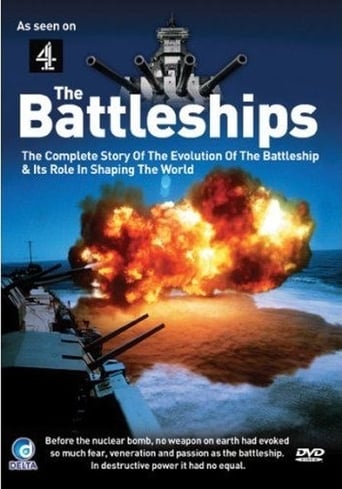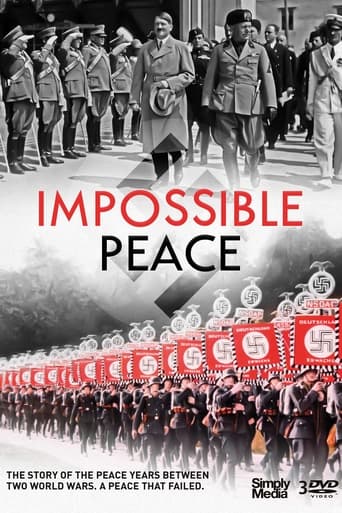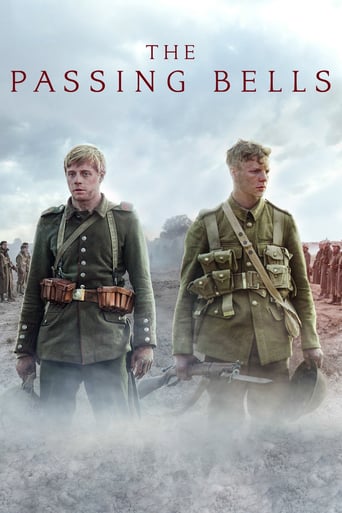With 30 Day Free Trial!
The Great War
2014
2 years after the start of the war, three of the biggest battles of human history are fought simultaneously: The Russian Brusilov Offensive, the Battle of the Somme and the Battle of Verdun cause over 4,000,000 casualties. And still there is no end in sight.
Watch Trailer
The Great War Season 3 Full Episode Guide
The fierce battle of Verdun is still going on and the initial surprise momentum of the German Army under Erich von Falkenhayn is lost. Battles for hill tops and forts turn into carnage where even the winning side is loosing too much men to go on. The Siege of Kut is growing ever more desperate as the there is virtually no food left for the British Army. And in all that Portugal is joining the war.
The fierce Battle of Verdun continues but as the Germans under Crown prince Wilhelm push harder and harder, the German casualties begin to rise to the same levels as the French. The French Army is only kept alive through the sacred road which brings men to the front without a pause. One French soldier that gets captured around Verdun, is Charles De Gaulle. At the same time, on the almost forgotten Libyan Front South African cavalry saves the day like in the glorious past of the British Army.
The Germans start the biggest battle in history with an artillery barrage of over 1000 guns on a 20 km front. The Battle of Verdun is the first major German offensive since the Race to the Sea and Erich von Falkenhayn has high hopes to break through the French lines. Right before the offensive starts, the French are able to reinforce their defences, so they are barely able to hold the line. The French credo is: "lls ne passeront pas!" – they shall not pass!
The sinking of the Lusitania is still causing diplomatic tensions between Germany and the USA. While the Germans insist they were forced by the British blockade to adopt unrestricted submarine warfare, the Americans think otherwise. In the meantime the Russian Army is taking Erzurum in the Caucasus and the big offensive at Verdun is delayed for a week.
The situation for the Italian soldiers was dire during the winter battles, but even though Luigi "The Generalissimo" Cadorna maintained a tight grip on the strategy used, the equipment of the Italian soldiers was greatly improved. At the same time, the Russians were advancing on Erzurum in the Turkish Caucasus and war at sea counted a few more casualties on all sides.
The preparations for the huge German offensive at Verdun are almost complete. Thousands of artillery pieces are moved, millions shells brought to the front. Erich von Falkenhayn would soon unleash is offensive on the Western Front. At the same time, Russia headed south to the Caucasus once more in search for a desperately needed victory against the Ottomans.
Even though Britain went to war over the violation of the Belgian neutrality by the Germans, the neutrality of Greece seems to be of no concern to the Entente. The military presence on Corfu and Salonika is growing and growing. And even though there is no fighting there, the soldiers have to suffer since general Malaria is taking his toll. In the week of the Kaiser's birthday, the diplomatic tensions between the USA and Germany are increasing and on the Western Front Trench Foot is becoming a real problem.
The Russians try to take Czernowitz, the Capital of Austrian Bukovina but thousands upon thousands of Russians were killed in action. While in Montenegro, Austro-Hungarian troops under commander in chief Franz Conrad von Hotzendorf take control of the Balkan state of Montenegro. A relief force led by Lieutenant-General Fenton Aylmer had to return to base after a big loss against the Turks, while in South Cameroon, so the Germans retire into Spanish territory.
It already started around Christmas but this week the evacuation of Gallipoli is complete. While the evacuation was a success, the overall defeat is inarguable for the British. On top of that the Ottomans can now send 40.000 soldiers to the siege of Kut in Mesopotamia where the British are still awaiting relieve. At the same time the Austro-Hungarian Army starts its invasion of Montenegro and the Western Front is still quietly awaiting the offensive at Verdun.
1915 was a year in favour of the Central Powers. But in early 1916, the Russians, British and French were sending more fresh troops into battle than ever before – and better equipped too. French General Joseph Joffre was confident that a huge combined offensive at the Somme in summer would turn the tide. But German Chief of Staff Erich von Falkenhayn had his own plans to bleed the French dry at Verdun.
Free Trial Channels
Seasons






































